Is Utopia the cleverest show on Australian television?
The new series of Utopia brilliantly captures the absurdity of modern policymaking.
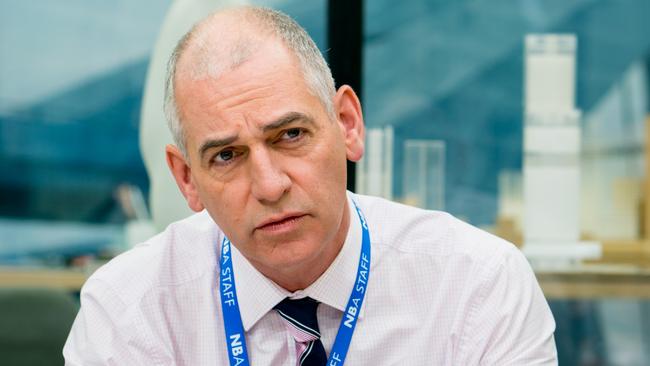
For the creators of Utopia, set in the fictional office of the Nation Building Authority responsible for delivering major infrastructure projects, the series is as much a satire on the public service and politicians as it is on the modern office.
“One of the things that underpins Utopia is that offices are petri dishes for all sorts of new etiquettes and social norms,” co-creator Rob Sitch, 61, tells Review ahead of the return of the program. “We used to joke that Frontline (1994-97) was an office comedy with current affairs tacked on top of it because offices are inherently a really funny place.
“Utopia came along at a time when the idea of someone yelling at people in the workplace went out years ago. So, it is all these quiet, passive-aggressive frustrations where you have got to negotiate telling people off and try to get the best out of people without actually offending anyone, especially if they are acting in good faith.”
The first episode of season 5 sees the team trying to work out why a road project has been delayed. A new assistant minister is appointed as a high-tech fridge is installed in the office kitchen, and the human resources department warns of the legal implications of signing a farewell card and hosting drinks for a departing member of staff.
Written by the Working Dog team of Sitch, Santo Cilauro and Tom Gleisner, with Sitch also starring and directing, Utopia sees CEO Tony Woodford (Sitch) and second in charge, Nat Russell (Celia Pacquola), navigate political pressures while determined to make sound public policy decisions set against a distracting office environment.
The fast-pace and quick-dialogue is handled superbly by an ensemble cast that makes every scene a contest for the biggest laughs between political adviser Jim Gibson (Anthony Lehmann), public relations manager Rhonda Stewart (Kitty Flanagan), project manager Ashan De Silva (Dilruk Jayasinha), assistant to the CEO Scott Byrnes (Dave Lawson), personal assistant Katie Norris (Emma-Louise Wilson) and receptionist Courtney Kano (Nina Oyama) .
Australians like poking fun at governments, never subscribing to a lofty view of political leaders, and are accustomed to politicians over-promising and under-delivering. Grand infrastructure ambitions are seldom realised on time or on budget, and often turn into white elephants. Utopia brilliantly captures the absurdity of modern policymaking.
Sitch’s character, Tony, was headhunted from the private sector to run the agency. The audience can identify with Tony and Nat as their patience is constantly tested as they deal with dramas large and small, but always remain focused on trying to do what’s best for the country. One of the starting ideas was that Tony had his resignation letter ready in the top drawer of his desk but decided to stay because of the good-natured people he works with.
It is not possible to dislike any of the characters because they are all so affable and they mean well, whether it is human resources manager Beverley Sadler (Rebecca Massey) warning of legal pitfalls dealing with staff or Brian Collins (Jamie Robertson), responsible for security and building services, updating office equipment and making sure everyone is wearing a lanyard.
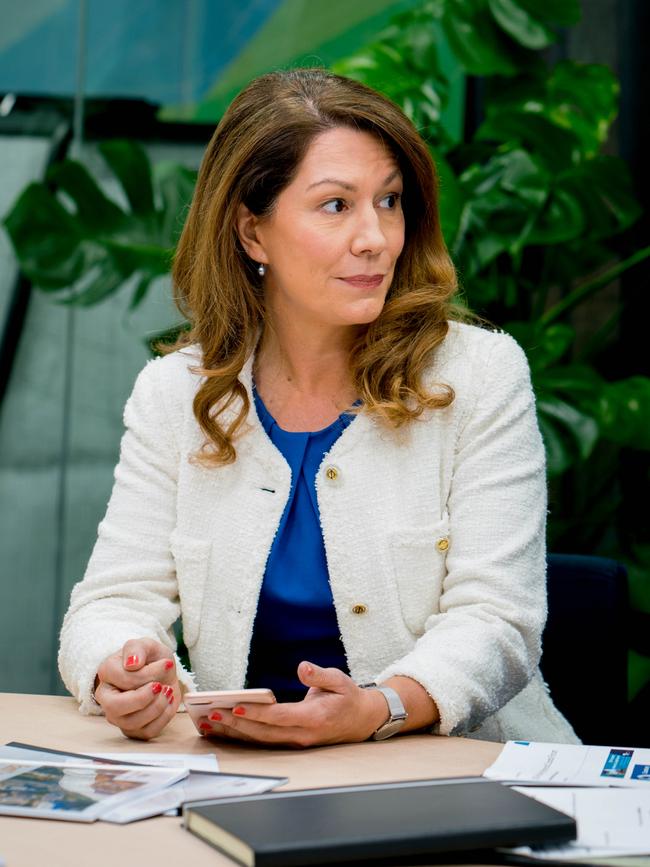
There are countless instances of Scott being late for a meeting, Rhonda trying to protect the government’s image with a new public relations strategy, Katie trying to schedule a meeting that Nat is trying to avoid, Amy asking what food and drinks to serve at a staff function, or Jim’s enthusiasm for a project that Tony knows will never be delivered.
“You lose perspective by what you are concentrating on,” Sitch says.
“Someone who is absolutely outcome-based, loses perspective on etiquette and manners. When you think about what builds up a comic character, it being intensely focused on something that produces a hilarious quality in people where they lose perspective.”
The writing is so good that eagle-eyed viewers are now aware of the tactics that politicians use when they dream big dreams in the hope it pays an electoral dividend, whether it be wearing hard hats and fluoro yellow work vests or the promise of “shovel-ready” projects.
The best example of life imitating art is when Tony met with Defence chiefs about a new white paper. Is it designed to protect Australia against China, he asks? They nod. “What exactly are we protecting?” he further asks. “Our trade routes?” They nod. China is Australia’s no. 1 trade partner. Tony sums up: “So under this scenario, we’re spending close to $30bn a year to protect our trade with China from China?” They nod.
“There’s a sweet spot of absurdity where the spell you are trying to cast is that it’s believable, but you can’t be so absurd that people go, ‘Well, that’s just a joke. That would never happen.’ Sometimes reality is at a really absurd joke level,” Sitch says, laughing.
Yes, Minister (1980-84) is Sitch’s favourite television show. But the idea that political advisers rather than public servants are really in charge is what inspired The Hollowmen (2008) set in the prime minister’s office. Utopia offers a different perspective. Originally titled Wasteland, it was to focus on a development site where despite extensive planning, nothing happened.
“We always wanted to be an authority, not a government department, so there was this veneer of independence,” Sitch explains. “We really do like the Groundhog Day (1993) of Utopia – that whatever people’s state of mind is in episode 1, series 1, in a weird way that is still the same in episode 8 of series 5.”
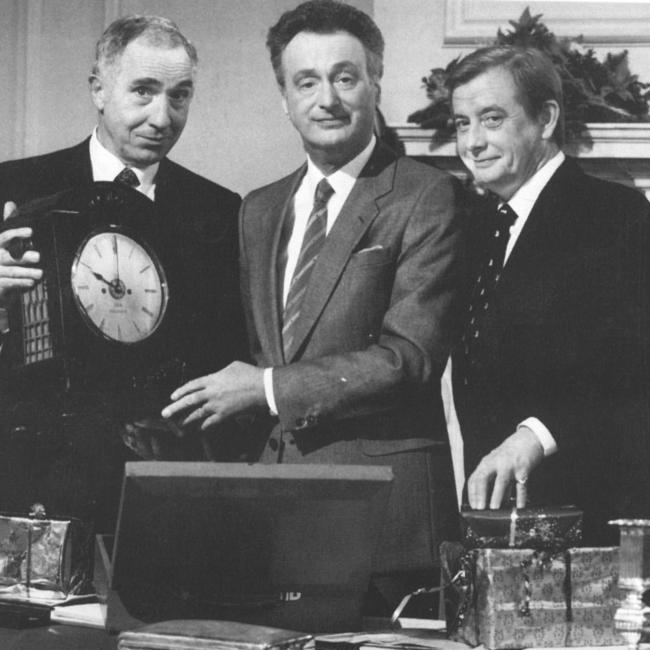
They never planned to do more than one season of Utopia, but the ideas kept coming. Sitch, Cilauro and Gleisner enter concepts into a phone app and then lay it out on a whiteboard. Then it takes perhaps a dozen drafts to get to a shooting script. Many of the storylines come from their own office. Sitch recalls filing into a meeting room and then realising nobody actually called a meeting. Or having a meeting to decide a going away present for a staff member.
“We have had an office for years and years, and we naturally have our radars up for it,” he says. “A lot of these things happen to us. We have never had to borrow someone’s office experience for research, that’s for sure.”
This style of deadpan humour, Sitch explains, was influenced by the rockumentary This Is Spinal Tap (1984). It is evident in their 1980s D-Generation days on radio and television, on The Late Show (1992-93), Frontline and The Hollowmen, and infused classic films such as The Castle (1997) and The Dish (2000). It is the only comedy they know how to write, he says.
“At no point is anyone knowingly being funny,” Sitch says. “People are unaware that what they are doing is silly or amusing or absurd. I still love all forms of absurd comedy. Everyone has their own taste. That is my taste in comedy. So, in a way, The Hollowmen and Utopia have that musical key of believability.”
The fifth season of Utopia returns at 8pm on June 7 on ABC TV and iView



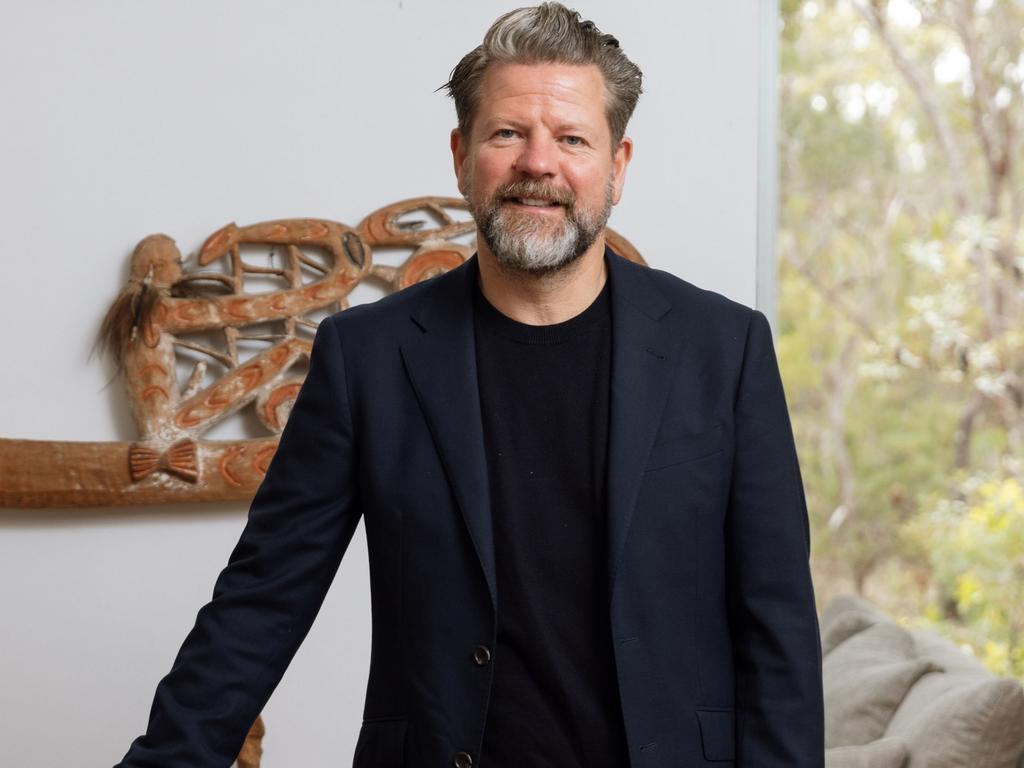

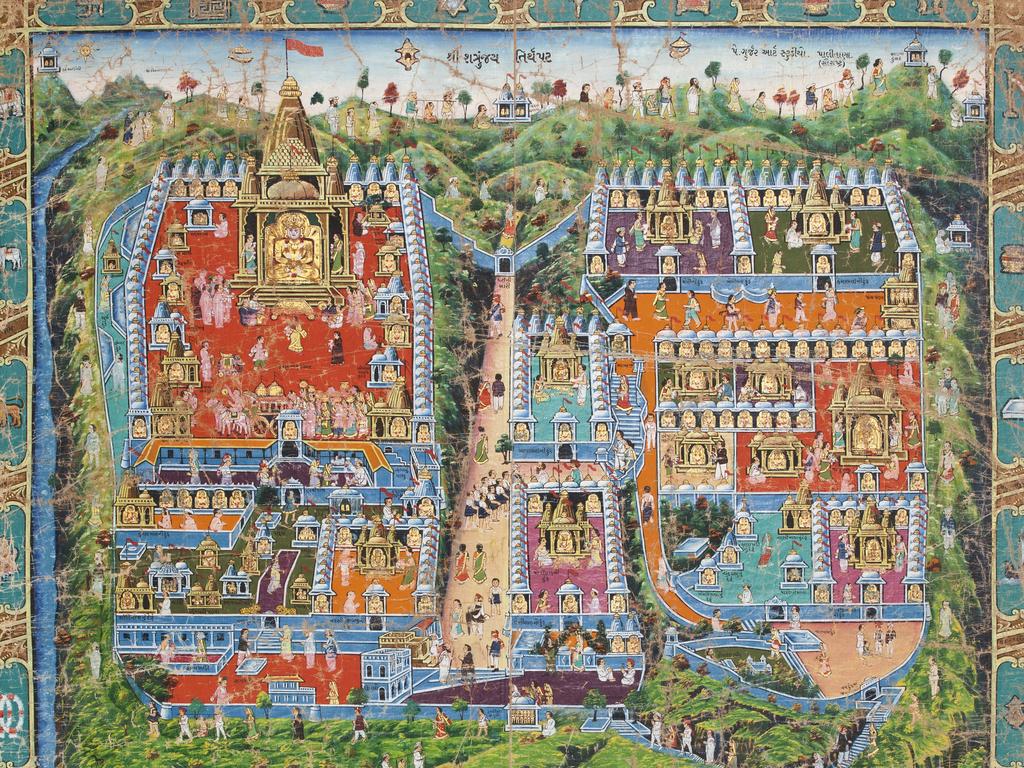
To join the conversation, please log in. Don't have an account? Register
Join the conversation, you are commenting as Logout